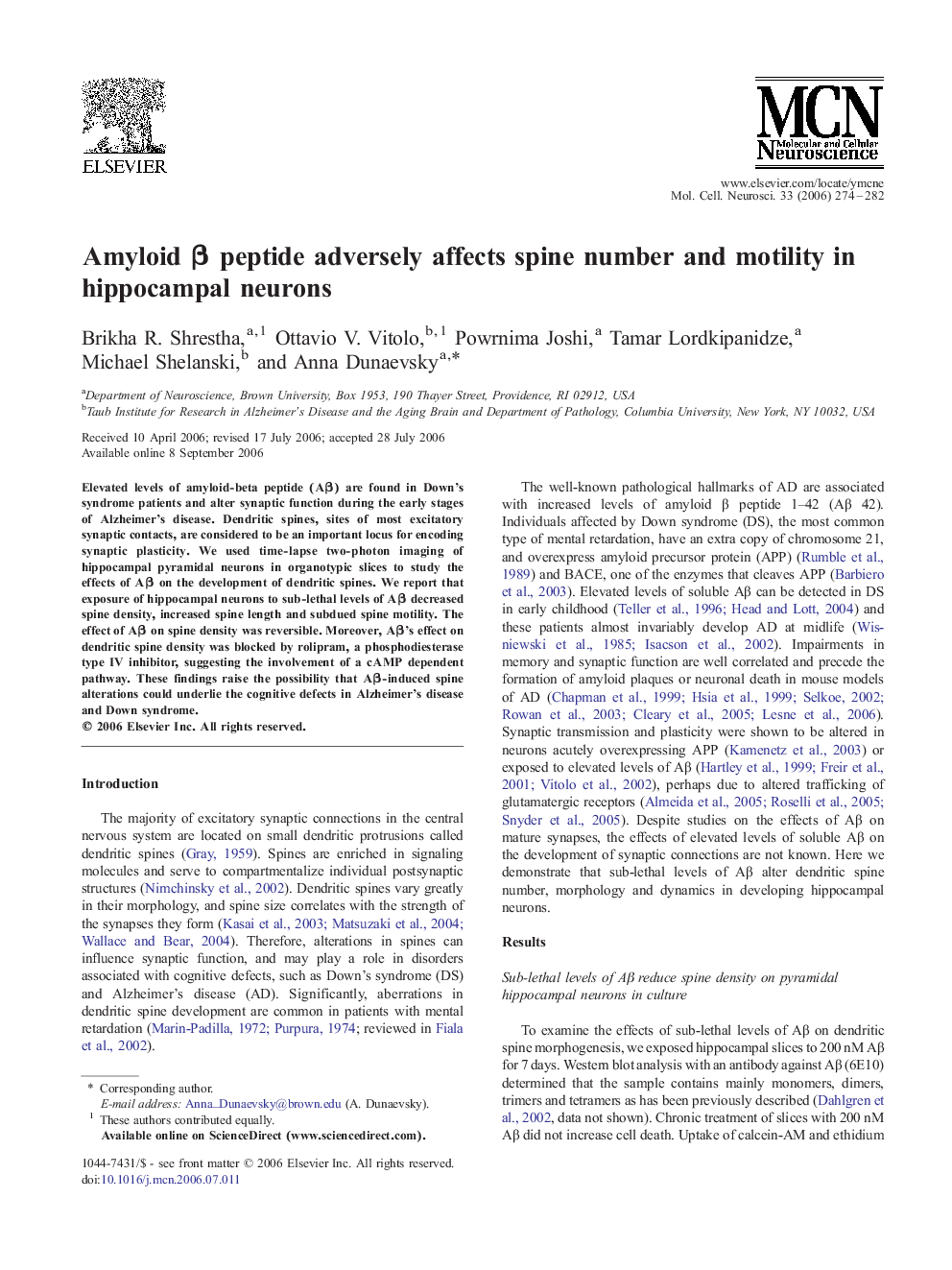| Article ID | Journal | Published Year | Pages | File Type |
|---|---|---|---|---|
| 2199546 | Molecular and Cellular Neuroscience | 2006 | 9 Pages |
Elevated levels of amyloid-beta peptide (Aβ) are found in Down’s syndrome patients and alter synaptic function during the early stages of Alzheimer’s disease. Dendritic spines, sites of most excitatory synaptic contacts, are considered to be an important locus for encoding synaptic plasticity. We used time-lapse two-photon imaging of hippocampal pyramidal neurons in organotypic slices to study the effects of Aβ on the development of dendritic spines. We report that exposure of hippocampal neurons to sub-lethal levels of Aβ decreased spine density, increased spine length and subdued spine motility. The effect of Aβ on spine density was reversible. Moreover, Aβ’s effect on dendritic spine density was blocked by rolipram, a phosphodiesterase type IV inhibitor, suggesting the involvement of a cAMP dependent pathway. These findings raise the possibility that Aβ-induced spine alterations could underlie the cognitive defects in Alzheimer’s disease and Down syndrome.
